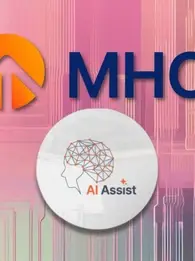
The European Union is planning to invest more than $24 billion into developing artificial intelligence for the continent's citizens.
The 24 member nations of the EU signed an agreement which will develop what is described as "three-pronged approach" to increase public and private investment in AI, prepare for socio-economic changes, and ensure an appropriate ethical and legal framework.
Vice-President of the Digital Single Market Andrus Ansip said: "Just as the steam engine and electricity did in the past, AI is transforming our world. It presents new challenges that Europe should meet together in order for AI to succeed and work for everyone.
"We need to invest at least €20 billion by the end of 2020. The Commission is playing its part: today, we are giving a boost to researchers so that they can develop the next generation of AI technologies and applications, and to companies, so that they can embrace and incorporate them."
The EU is apparently concerned that will negatively affect many aspects of life even as improves others. In a statement, the EU said: "With the dawn of artificial intelligence, many jobs will be created, but others will disappear and most will be transformed. This is why the Commission is encouraging Member States to modernise their education and training systems and support labour market transitions."
The European Commission, the EU's administrative arm, says it will:
- support business-education partnerships to attract and keep more AI talent in Europe;
- set up dedicated training schemes with financial support from the European Social Fund; and
- support digital skills, competencies in science, technology, engineering and mathematics, entrepreneurship and creativity.
The EU adds that it will provide "strengthened support" for training in advanced digital skills, including "AI-specific expertise".
And in what might be seen as an ironic twist, given that it has introduced stringent regulations to protect user data, the EU is planning to bring in legislation to "open up more data for re-use and measures to make data sharing easier".
However the EU is probably referring to aggregated and anonymised data which cover public utilities and the environment as well as research and health data, rather than private citizens' individual private data.












